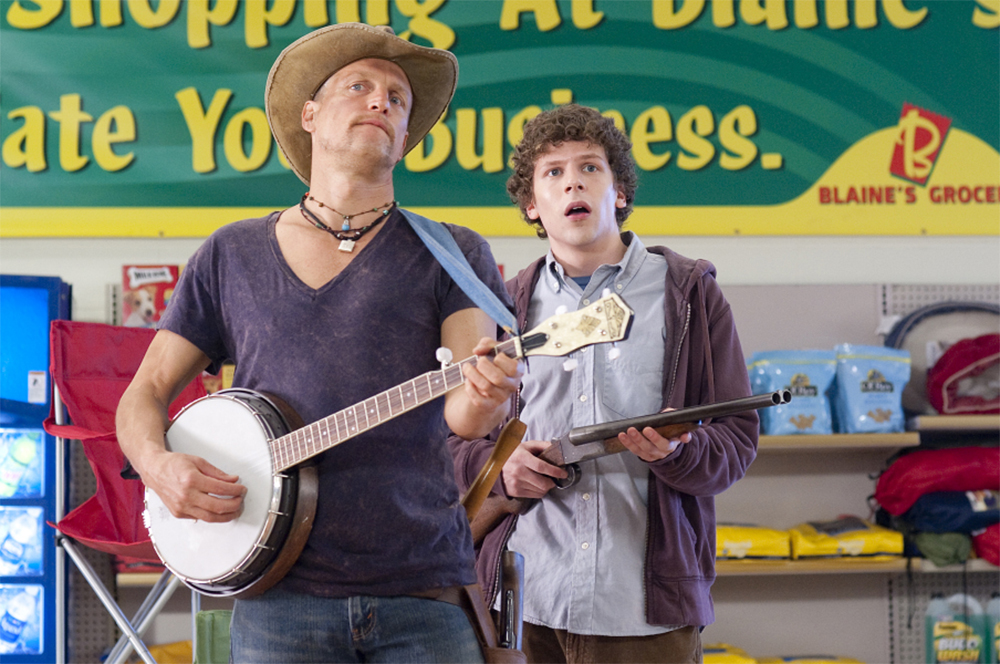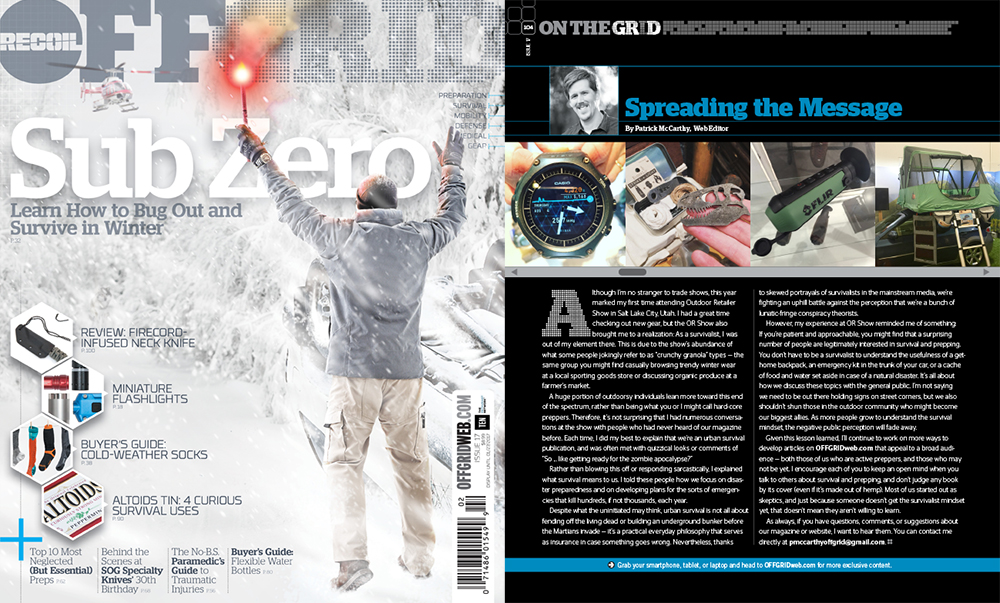RECOIL OFFGRID Preparation Op-Ed: Explaining the Prepper Philosophy
Today is Thanksgiving, and that usually means several hours of small talk with family and friends. Depending on how open you are about your lifestyle and interests, it's possible the subject of prepping may come up, so it's worth considering how (or if) you'll discuss the topic.
Prepping typically isn't an easy subject to breach with the unfamiliar or the uninformed — whether they're friends, family, coworkers, or new acquaintances. As a result of negative portrayals in the news, movies, and “reality” TV shows, telling people you're a prepper often causes them to look at you as though you just sprouted two heads. In many circles, the mere word prepper evokes images of a paranoid, panicky conspiracy theorist who thinks the CIA is controlling our thoughts with satellites and lives in a bunker in case the Martians invade.

Despite the stereotypes, real-world prepping is a far cry from Hollywood's zombie apocalypse portrayals.
Since you're reading this, you should already be well aware that these stereotypes are laughably inaccurate, but other people outside the community may not be. That's why it's important to know how to approach the subject if it comes up during casual conversations. There are a few schools of thought on how to do so — you can read mine in my column “Spreading the Message” in Issue 17 of our magazine.

My column in Issue 17 of our magazine addresses the topic of talking about your preps with strangers.

Brandon Barton of Last Man Projects recently wrote about his experience talking about his prepper philosophy with some coworkers. He makes some good points, so we've shared an excerpt below, as well as a link to the full post at the end of this article.
A little over a week ago, I was sitting around with 9 other coworkers in a private dining room of Willie G's in Houston. We'd been stuck in a conference room all that day and capped off a productive meeting with a nice meal on the company dime. The conversations floated around between different people on different subjects, and some of us got to talking cars.
I brought up Lucille [Editor's Note: Lucille is Brandon's custom Ford Bronco bug-out truck, which was featured in two articles here on OFFGRIDweb: Part 1 and Part 2] and eventually showed an engineer across the table the articles in OFFGRID. Long story short, he saw what OFFGRID is all about, and asked me if I was “a doomsday prepper”. I laughed it off with a “no, no; nothing quite that extreme”. Then a VP sitting next to me said, “are you prepared for the zombie apocalypse?” at about the time all the conversations hit one of those random lulls. Now, everyone at the table's looking at me. Damn, now I've got to launch into my “prep talk”.
As I see it, there are two schools of thought on talking about prepping.
One is of course to not talk about it. It's basic opsec; people can't covet and steal what they don't know about. It's relatively fool proof provided you can pull it off. (I live in a small cul-de-sac. When you off-load large water storage tanks that go to the backyard, lots of shelving, or have Lucille sitting there, people notice.)
The other is to talk about it within reason and educate folks on the benefits of being prepared. That's the camp I'm in (obviously). I talk about it in the abstract. I don't get into the details about what and how much.
As I see it, the more people I “switch on” to a preparedness mindset, the stronger we are as a society. More people that can hold their own in a crisis means less people that need government aid (which means the aid stretches farther); it means less people inclined to take from others what they do not have, and more people available and able to deal with those types of folks. Because of choosing to talk in general terms about preparedness or just “walking the walk”, most people in my neighborhood have become more prepared to one extent or another. Ultimately that means greater security for my family and my preparation. I couldn't really hide it, so I got more people involved to secure my situation.
In the case of the dinner, I don't live or work around anyone that attended so other than carrying around a little reputation for being “different”, what's the harm?
When I talk to a non-prepper about beginning to prepare, I usually get one of three initial responses. I'm either assumed to be a doomsday prepper, prepping for the zombie apocalypse (kinda the same thing but said enough it warrants its own category), or a hoarder. Over the years I've developed and refined ways to overcome these stereotypes and help people see that prepping isn't a fringe activity, but responsible citizenship.
Click here to read the rest of Brandon's post.
 STAY SAFE: Download a Free copy of the OFFGRID Outbreak Issue
STAY SAFE: Download a Free copy of the OFFGRID Outbreak Issue
No Comments